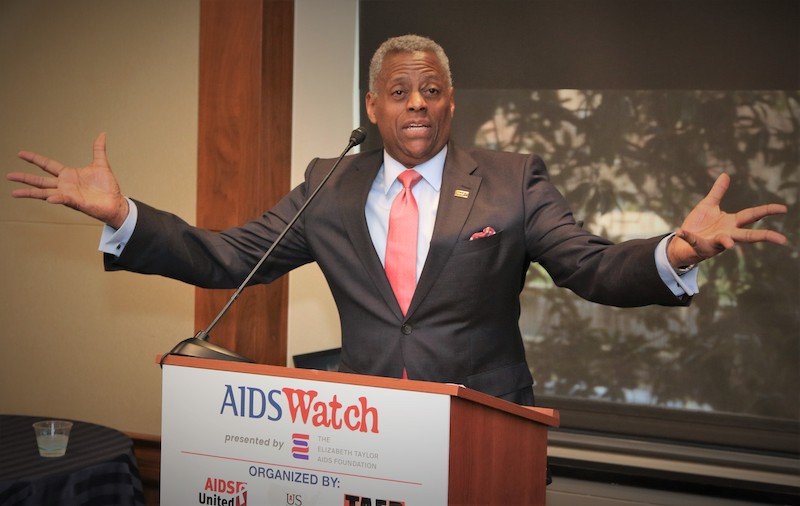AIDS United is on a singular mission to end the HIV epidemic in the United States.
Achieving this mission should be simple. We already know all the medical interventions needed to end the HIV epidemic: testing, prevention and treatment.
First, everyone needs to know their HIV status. Testing is the ultimate gateway to HIV prevention and treatment.
Those of us who don’t have HIV need to have access to the many prevention tools that already exist, like condoms and pre-exposure prophylaxis, or PrEP, a medication that stops HIV transmission.
And those of us who are living with HIV need to have the medical care necessary to reach an undetectable viral load, the point at which the amount of the virus is so low in our bodies that it doesn’t show up in blood tests.
Getting to undetectable is one of the best things we can do to stay healthy. HIV attacks our immune systems, and reducing the amount of the virus in our bodies reduces its power to damage our immune systems.
Getting to undetectable also means we cannot pass the virus along to anyone else; undetectable equals untransmittable, or U=U.
When paired together, testing, prevention and treatment work.
It sounds simple, yet even after decades of work, we have a long way to go in all three of these areas. By the end of 2021, only 87% of people living with HIV knew their status. And of those, 75% received some care, and only two-thirds had reached an undetectable viral load.
The biggest obstacle to ending the HIV epidemic is a lack of health equity.
According to the Centers for Disease Control and Prevention, “Health equity is achieved when every person has the opportunity to ‘attain his or her full health potential’ and no one is ‘disadvantaged from achieving this potential because of social position or other socially determined circumstances.’”
The lack of equity is a direct result of a deadly mix of racism, classism, sexism, homophobia, transphobia, whorephobia, stigmas around sex and drug use, and more. These systems of oppression erect significant barriers to HIV testing, prevention and treatment.
And so AIDS United is working every single day to increase both health equity and access to testing, prevention and treatment.
That’s the only way we can achieve our mission of ending the HIV epidemic in the United States.
We are doing this work in three ways:
- We are strengthening organizations working in the HIV sector by providing capacity building training and technical assistance.
- Advocating for the laws, policies and government programs that address health equity and increase HIV testing, prevention and treatment.
- Strategically providing grants to the organizations best situated to end the HIV epidemic in their communities.
Driving Impact Year after Year
You can view each section of our 2022 impact report above or download a PDF version.


